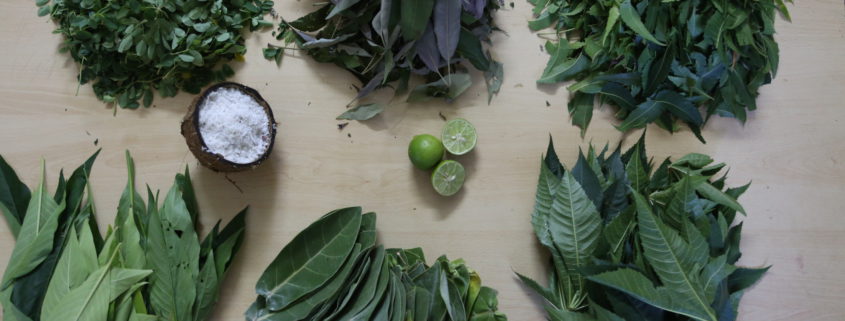Natural plant oils have been used for thousands of years for their healing, cleansing, preservative and mood-enhancing properties as well as the sheer pleasure of their fragrances. Aromatherapy harnesses the pure essences of aromatic plants, flowers and resins, to work on the most powerful of the senses- smell and touch- to restore the harmony of body and mind.
The French doctor and scientist Rene Maurice Gattefosse is called the 20th-century father of Aromatherapy. He is credited with coining the term “aromatherapy” to describe treatments with essential oils. Aromatherapy first became popular in the early 1980s, when there was an upsurge in the popularity of “natural,” non-toxic healing methods that cost less than conventional medications and produce fewer side effects.
The essential oils used in Aromatherapy are produced by steam distillation or cold pressing from a plant’s flowers, leaves, branches, bark, rind or roots. These volatile, flammable oils are then mixed with a “carrier oil”–usually, a vegetable oil such as soy, evening primrose, or almond–or diluted in alcohol before being applied to the skin, sprayed in the air or inhaled.
Advocates of aromatherapy propose a variety of mechanisms for its reported effects. The most widely accepted theory suggests that fragrances do their work via the brain. When aromatic molecules enter the nasal cavity and stimulate the odor-sensing nerves, the resulting impulses are sent to the limbic system–the part of the brain that’s believed to be the seat of memory and emotion. Depending on the scent, emotional responses then kick in to exert a calming or energising effect on the body.
Alternatively, some proponents suggest that certain aromas may work by stimulating the glands, prompting the adrenal glands, for example, to produce steroid-like hormones that fight pain and inflammation. Others believe that the essential oils, whether inhaled or rubbed into the skin, react with hormones and enzymes in the bloodstream to produce positive results.
The most common methods of aromatherapy are:
- Inhalation: Adding 6 to 12 drops of essential oil to a bowl of steaming water and deeply breathing in the scented vapours.
- Diffusion: Spraying oil-containing compounds into the air. This technique is said to calm the nerves, enhance a feeling of well-being, and even to improve respiratory conditions.
- Massage: Rubbing aromatic oil into the skin may be either calming or stimulating, depending on the type of oil used. Some people use it as a remedy for muscles sprains and soreness. Most preparations contain 5 drops of essential oil blended with a light base oil. A higher concentration could irritate the skin.
- Bathing: adding 6 to8 drops of oil to a tub full of water
- Hot and cold compresses: Soaking a cloth in a solution (adding 5 to 10 drops of oil to 4 ounces of water) and applying to the sore area. This is an excellent treatment for muscle aches or pains, bruises, or headaches.
Listed are some of the common essential oils and the symptoms that they alleviate:
- Lavender: Heals burns and cuts; destroys bacteria; relieves depression, inflammation, spasms, headaches, respiratory allergies, muscle aches, nausea, menstrual cramps; soothes insect bites and lowers blood pressure.
- Peppermint: Alleviates digestive problems; cleans wounds; decongests the chest; relieves headaches, neuralgia, and muscle pain. It is also useful for motion sickness.
- Eucalyptus: Lowers fever; clears sinuses; has antibacterial and antiviral properties; relieves coughs and is useful for boils and pimples.
- Tea Tree: Fights fungal, yeast, and bacterial infections; useful for skin conditions such as acne, insect bites, and burns; helps clear virginitis, bladder infections, and thrush.
- Rosemary: Relieves pain; increases circulation; decongests the chest; relieves pain, indigestion, gas, and liver problems; lessens swelling; fights infection; helps alleviate depression.
- Chamomile: Reduces swelling; treats allergic symptoms; relieves stress, insomnia, and depression and is useful in treating digestive problems.
- Thyme: Lessens laryngitis and coughs; fights bladder and skin infections; relieves digestive problems and pain in the joints.
- Tarragon: Stimulates digestion; calms neural and digestive tracts; relieves menstrual symptoms and stress.
- Everlasting: Heals scars; reduces swelling after injuries; relieves sunburn; fights infections such as bronchitis and flu; treats pain from arthritis, muscle injuries, sprains and strains and tendonitis.

